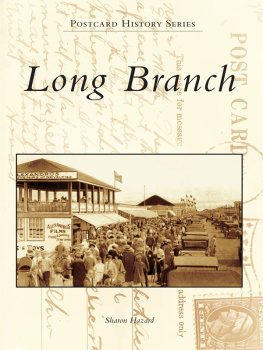

Contents
About the Author
Leah Hazard is a serving NHS midwife. Having studied at Harvard, she left a career in television to pursue her lifelong interest in womens health after the birth of her first daughter. She soon began working as a doula, supporting women in pregnancy and attending numerous births in homes and hospitals across the country. The birth of Leahs second daughter prompted Leah to make the leap into midwifery. Since qualifying, she has worked in a variety of clinical areas within the NHS maternity services, including antenatal clinics, triage units and labour wards.
There must be those among whom we can sit down and weep and still be counted as warriors.
Adrienne Rich
Authors Note
The events described in this book are based on my life, experiences and recollections. To preserve patient confidentiality and the privacy of colleagues, names, places and all identifying features have been changed. The stories told are not based on any one specific patient or individual; rather, they are a selection of composite characters drawing from my various experiences. Any similarities are purely coincidental.
Where It Begins
Another night, another vagina.
Its not unusual for me to spend the night between a strangers legs. Sometimes two or three strangers in the space of twelve hours. Tonight is a bit different, though. Its 3.42 a.m. and things arent going to plan. Sitting in point-blank range of this particular vagina feels like staring down the barrel of a gun. Birth is inherently risky, a kind of physiological Russian roulette, but every midwife prays that shell dodge the bullet.
I cant do it, wails a disembodied voice. At the same time, a slick patch of dark hair looms into view in front of me. You are doing it, and you will do it, I call up to the voice. I glance quickly at the clock on the wall and then say quietly, to myself, 03.44, vertex visible. I will need to write a detailed report of all of these times and events later, when the blood-stained paper drapes have been bagged and tagged, a tray of tea and biscuits sits on the window sill and the baby has arrived safely. If the baby arrives safely.
Another contraction powers through the woman in front of me; her open legs judder and shake; the small circle of hair becomes negligibly wider as the babys head is nudged a millimetre closer to the outside world. 03.46, I note silently. Vertex advancing. For fucks sake, comes the voice from the top of the bed. Make it stop. Pull it out, cut it out, I dont fucking care any more. So much effort for so little progress. Beads of sweat are dripping down the bridge of my nose now; the room is dark apart from one spotlight blazing a single white beam between my patients legs. My hands are gloved and sterile; unable to touch anything but the woman in front of me. I let the sweat trickle down my nose, my chin, the back of my neck.
That perineums tight, says another voice, from over my shoulder this time. Mary, the midwife who answered my buzzer for help with the birth, is looking on. Its not stretching out, she says, echoing my own unspoken fears as another contraction shakes the womans body and the top of the babys head pushes in vain against this thick band of skin.
Tick, tick, tick tick tick. Mary and I tense in unison as the monitor picking up the babys heartbeat slows, becoming irregular, sounding a familiar warning. 03.49, audible deceleration to 96 beats per minute. This is the drumroll we dread.
Your babys getting a bit tired, I say cautiously to the woman on the bed.
That makes two of us, retorts the voice, ragged and weary now.
A smaller contraction nudges the babys head; again, the taut skin holds it back.
Youre going to have to do an episiotomy, whispers Mary. I glance over at the tray of instruments just within reach on the metal trolley to my right. Cord clamps, water, cotton wool, sanitary pads. A small, stubby pair of scissors for cutting the cord and another, longer pair of scissors with short, straight blades, for cutting through skin and muscle. Recently, the hospital changed suppliers and, coincidentally or not, most of the scissors in these trays have been blunt. Cheaper, blunter: the staff could have T-shirts made with this slogan, I muse, as the fetal monitors rhythm stutters and slows. My tired mind veers back to the situation at hand, and I resume the documentation in my head. 15.51, I think, and then draw an imaginary line through my mental note. My brain is clearly wishing it were a day shift. 03.51, I start again. Fetal heart 108 bpm, decels persist. Preparing for episiotomy.
We might have to make a wee cut, I call brightly to the voice at the top of the bed. Just to help this baby out. So many things in midwifery are wee a wee cut, a wee tear, a wee bleed, the latter used to describe anything from a trickle to a torrent. Euphemisms are one of our many small mercies: we learn early on to downplay and dissemble. The brutality of birth is often self-evident; there is little need to elaborate.
The monitor continues its erratic backbeat, the babys pulse now sitting at seventy-four beats per minute roughly half of what it should be and its not coming back up to a reasonable baseline in between contractions. Mary passes me the scissors. A glass bottle of lidocaine catches the light at the edge of the trolley, but the babys heartbeat is slowing, and there may not be time to inject the local anaesthetic.
Fuck, fuck, fuck. A voice. Im no longer sure if its the patients or the one in my own head. Hand quivering with nerves and caffeine, I loop two fingers just inside the band of skin, creating a pocket between skin and baby where I know I can cut. Technical term: a mediolateral episiotomy. Reality: a deep bite into tender tissue at the angle of eight oclock, an outrageous insult to the pelvic floor, but an instantaneous way to ease a babys troubled passage. I hate doing this. I hate cutting women, I hate the pain this will cause them for days, if not weeks, to come, and I hate knowing that in about half an hours time, all going well, I will have to repair my own handiwork. Just when the patient begins to relax, lying back with her baby scrabbling happily on her chest, I will have to find a second wind and begin round two. Scrub up, gown up, new instruments, curved needle and spooled suture poised in mid-air to fix the damage done.
I raise my scissors. An almighty wave surges through the woman and the babys head lunges forward. Jesus, Mary and aaaaaaaaaah, roars a voice. Please let these scissors be sharp, says the quieter, but no less urgent, voice in my head. Please let this baby come. Please let it be OK. And finally, the urgent, daily prayer of midwives everywhere: Please let me keep my job and not be struck off when something horrible happens and please, please, please let my bladder hold for at least another hour until this is over and done with.
Its not even 4 a.m. yet. Ive been awake for almost twenty-four hours. Scissors meet flesh. How did I get here?
Notes on Bowling Balls, and Other Birth Stories
I learned about childbirth from Mike Katz, second-place winner of Mr. Olympia 1976 (Over 200-pound Division), and holder of other such illustrious titles as Mr. Insurance City (ninth place, 1963), Mr. Universe Tall (third place, 1973) and Mr. America Tall & Overall (fourth place, 1970). Mike Katz or Mr Katz, as he was known to me during my high-school years was a veteran bodybuilder, teacher and ice hockey coach with a record-busting 60-inch chest in his prime and hulking biceps so large that he had to strut the school corridors with his arms held at a jaunty distance from his torso.
Next page









